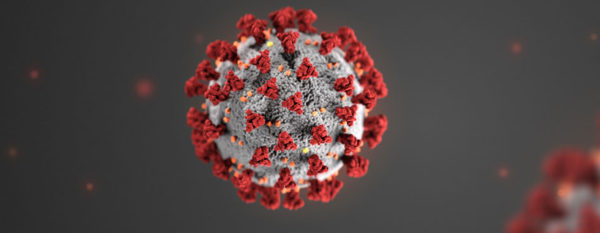
- Details
- By Native News Online Staff
ROCKVILLE, Md. — Top federal health officials on Tuesday urged the public to prepare for the “inevitable” spread of the coronavirus within the boundaries of the United States.
“Ultimately, we expect we will see community spread in the United States. It’s not a question of if this will happen, but when this will happen, and how many people in this country will have severe illnesses,” Nancy Messonnier, the director of the National Center for Immunization and Respiratory Diseases at the CDC, said during the morning briefing with reporters.
On Monday, the Indian Health Service (HIS) posted the following message on its website:
The Centers for Disease Control and Prevention is closely monitoring an outbreak of a respiratory disease, “coronavirus disease 2019” or COVID-19, that is caused by a new coronavirus that was first detected in China. COVID-19 has now been detected in 35 locations internationally, including cases in the United States.
For the general American public, who are unlikely to be exposed to this virus, the immediate health risk is considered low at this time. However, the potential public health threat posed by COVID-19 is high, both globally and to the United States. This is a rapidly evolving situation, and information is likely to become dated quickly. We encourage everyone to periodically review CDC’s COVID-19 webpage for the most recent updates.
The IHS will continue to follow our normal policies and procedures for evaluation and treatment of respiratory illnesses. We are asking patients who are presenting with flu-like illness if they have traveled recently as a means to determine their risk of exposure to COVID-19. If a patient comes under evaluation for COVID-19, IHS would coordinate with local, state, and/or tribal public health departments immediately.
While any direct impacts of this outbreak to Indian Country are not yet known, we must be vigilant in our efforts to prevent the introduction and spread of infections among our patients and within the communities we serve. Click here for some of the everyday preventive actions you can take to help prevent the spread of respiratory viruses.
As flu activity remains high in the U.S. and is expected to continue for weeks , it still isn’t too late to get your annual influenza vaccination. Everyone six months and older should get the vaccination each year to protect themselves and reduce the risk of spreading the flu to others. Vaccination against the flu is especially important for American Indians and Alaska Natives, who have been found to be at high risk of developing complications from the flu.
Studies have shown that people who get vaccinated will have fewer flu illnesses and doctor visits and miss less work due to influenza.
More Stories Like This
Native News Weekly (August 25, 2024): D.C. BriefsDeb Haaland Earns Endorsement From Communications Workers of America Local 7076
University Soccer Standout Leads by Example
Two Native Americans Named to Democratic Congressional Campaign Committee's“Red to Blue” Program
Cheyenne River Youth Project Hosts Young Women’s Winter Camp as Part of Lakota Culture Internship
Help us defend tribal sovereignty.
At Native News Online, our mission is rooted in telling the stories that strengthen sovereignty and uplift Indigenous voices — not just at year’s end, but every single day.
Because of your generosity last year, we were able to keep our reporters on the ground in tribal communities, at national gatherings and in the halls of Congress — covering the issues that matter most to Indian Country: sovereignty, culture, education, health and economic opportunity.
That support sustained us through a tough year in 2025. Now, as we look to the year ahead, we need your help right now to ensure warrior journalism remains strong — reporting that defends tribal sovereignty, amplifies Native truth, and holds power accountable.
 The stakes couldn't be higher. Your support keeps Native voices heard, Native stories told and Native sovereignty defended.
The stakes couldn't be higher. Your support keeps Native voices heard, Native stories told and Native sovereignty defended.
Stand with Warrior Journalism today.
Levi Rickert (Potawatomi), Editor & Publisher

